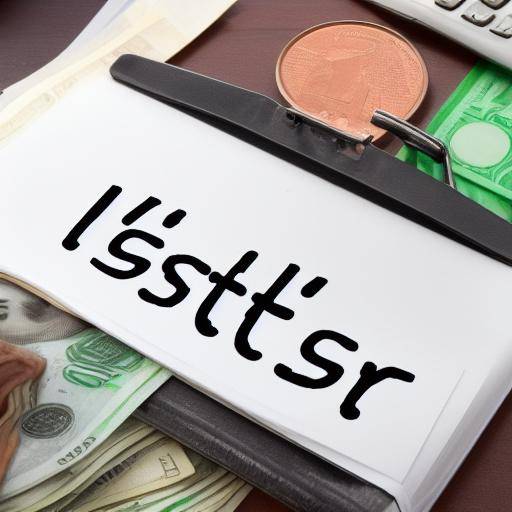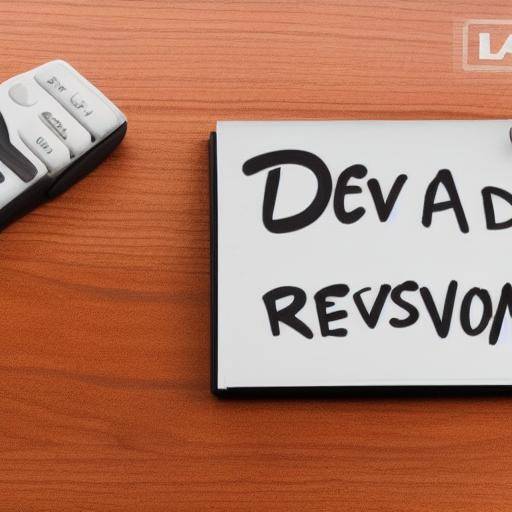
Debts are a common reality in modern life, and the proper management of debts is essential to avoid financial complications. In this article, we will explore the most common mistakes when paying debts and how to effectively avoid them. From the prevention process, through the learning of sound financial strategies, to success in debt management, this content offers a comprehensive guide that will help readers develop financial sustainability and avoid costly mistakes.
Prevention: Strategies to Avoid Unmanageable Debts
Avoiding excessive indebtedness is critical to maintaining sound financial stability. Here we will explore key strategies to prevent unmanageable debts and maintain effective control of personal finance.
Create a Realist Budget
The first step towards sound financial management is to establish a realistic budget. Identifying fixed income and expenditure is critical to avoiding overexpenditures and unnecessary loans. A well-structured budget allows people to take control of their finances and minimize the need to acquire debt.
Establish an Emergency Fund
Having an emergency fund is essential to avoid resorting to loans in times of crisis. Dedicating a portion of the monthly income to this fund provides financial security and avoids the accumulation of debts in unforeseen situations.
Avoid Impulsive Shopping
Impulsive purchases can quickly lead to unnecessary debts. In developing financial discipline and avoiding impulsive costs, the need for loans to cover debts generated by unnecessary purchases is reduced.
Learning: Strategies for Effective Debt Management
Once debts are acquired, it is crucial to learn how to handle them effectively to avoid long-term financial complications. We will explore financial learning strategies that will help readers manage their debts effectively.
Know the Interest Rates and Conditions of Loans
Understanding interest rates and borrowing conditions is critical to avoiding unmanageable debts. In knowing these aspects, borrowers can make informed financial decisions and avoid financial commitments that exceed their capacity to pay.
Prioritizing and Planning Payments
Faced with multiple debts, it is crucial to prioritize and plan payments to avoid delays, arrears and interest accumulation. Explore efficient payment strategies will help borrowers reduce their financial burden in an organized way.
Appeal to Financial Advice
Finding professional financial advice can provide valuable insights on debt management. Financial advisors can offer customized strategies and practical tools to handle debt effectively, avoiding common mistakes.
Success: Strategies for Successful Debt Management
Finally, achieving success in debt management implies adopting sound strategies that enable borrowers to regain control of their finances and to eliminate debts effectively. We will explore successful approaches to achieving financial freedom and stability.
Consolidation of debts
Debt consolidation can be an effective strategy to simplify payments and reduce interest rates. By combining multiple debts on a single loan with favorable terms, borrowers can reduce their financial burden and accelerate the payment process.
Create a Structured Payment Plan
Developing a structured payment plan allows borrowers to clearly visualize their progress and stay focused on the debt elimination goal. Establishing attainable goals and following them rigorously is key to success in financial management.
Cultivate Healthy Financial Habits
By adopting long-term healthy financial habits, borrowers can avoid future debts and maintain their financial stability. This includes maintaining a balanced budget, regularly saving and being aware of financial decisions.
Practical Tips and Useful Recommendations
In addition to the above strategies, here are some practical tips and useful recommendations to avoid common mistakes when paying debts:
- Explore refinancing options to reduce interest rates.
- Avoid using non-essential credit cards.
- Seek opportunities to generate additional income to accelerate debt payments.
- Negotiate with lenders to establish flexible payment periods if you face financial difficulties.
- Be aware of the rights and regulations related to loans and debts to protect your interests.
Conclusions and FAQs
Conclusions
In conclusion, avoiding and managing debt effectively requires a proactive, disciplined and educated approach. Prevention, continuous learning about personal finance and success in debt management are essential components for long-term financial stability. By applying sound strategies and cultivating healthy financial habits, individuals can avoid common debt-related errors and maintain a sound financial balance.
Frequently asked questions
How can I know if I'm acquiring too many debts?
Identifying if too many debts are being acquired requires a realistic assessment of the capacity to pay and the current financial burden. If monthly debt payments significantly compromise the available income, too many debts may be acquired.
What is the first step in managing existing debts effectively?
The first step is to evaluate all existing debts, including interest rates, payment periods and conditions. This will give priority to debts based on their financial impact and establish a structured payment plan.
How can I avoid falling into the trap of high interest loans?
Avoiding falling into the high interest loan trap involves investigating and comparing loan options before committing. Finding loans with competitive rates and favourable conditions is key to avoiding excessive financial burdens.
Is it advisable to seek professional help to manage debts?
Finding professional help, such as financial advice, can be beneficial to those who face difficulties in managing their debts. Financial advisers can provide personalized guidance and effective strategies to mitigate the financial burden.
What is the importance of maintaining an emergency fund by avoiding unmanageable debts?
Maintaining an emergency fund provides a financial safety net and avoids the need to borrow in times of crisis. This financial reserve helps to face unexpected situations without compromising long-term financial stability.
What are the consequences of not properly managing debts?
The consequences of failing to properly manage debts may include interest accumulation, late payment penalties, negative impact on credit history and increased financial stress. These consequences may affect financial stability and limit future opportunities.
External Sources
For more information on how to avoid common mistakes when paying debts, see the following external sources:
- Banco de España - Tips for debt management
- Financial Education for All - Strategies for avoiding unmanageable debts
- National Commission for the Protection and Defence of Financial Services Users (CONDUSEF) - Guidelines for the Effective Management of Debts
With a comprehensive approach to prevention, continuous learning and success in debt management, this article provides a comprehensive guide to avoid the most common mistakes when paying debts and promoting sound financial management. By implementing preventive strategies, continually learning about effective debt management and achieving success in financial management, readers can strengthen their financial position and build a more stable and prosperous future.






















































